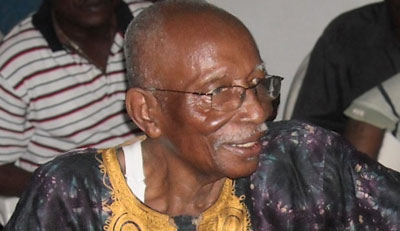Stanton B. Peabody, a pillar of the press in Liberia and mentor to generations of visiting foreign correspondents, died this week in Monrovia. He was 80. Stanton, affectionately called “Bob Stan” by friends and family, reported through five administrations, a coup that brought an army sergeant to power in 1980 and a civil war that toppled him in a bloodbath 10 years later.
Peabody was a staunch defender of press freedom and saw the inside of a prison cell several times for his work. After being released from jail in 1964 he immediately set up the Press Union of Liberia, the first organization founded to protect journalists in the West African country. Last year, the union honored Peabody and named the conference room in its headquarters for him. That was just one the many accolades given over a 50-year career, which including running national newspapers and working as the Liberia correspondent for Reuters news agency from the early 1960s.
I first met him in 1988 when he was already referred to as a “veteran journalist” as editor of the Daily Observer. As the regional bureau chief for Reuters, I was technically his boss. But when it came to picking a path through the maze of local politics and culture, Stanton was the always the man. He’d cheerfully explain the limits of what he could and couldn’t write under the erratic rule of President Samuel Doe but never dissuade me from doing so, even if it might cause him problems once I’d left the country.
Stanton was always laughing, but even his good humor couldn’t hide the pain he felt watching his country tear itself apart in 1990 after Charles Taylor and his rag-tag rebels moved into eastern Liberia from Ivory Coast. Doe’s forces retreated to Monrovia which was eventually besieged. Stanton sent his family abroad and hunkered down to cover the battle for the capital and the eventual killing of Doe. “My family left and I chose to stay; this action defined me and my profession,” he told CPJ in an interview last month to mark his 80th birthday.
It certainly did. Stanton went on fighting for press freedom, which deteriorated under Taylor’s rule, and the turmoil that followed. But in the end, Stanton and Liberian journalists like him triumphed. He noted with delight in his interview that Liberian journalism was enjoying it best period ever, with expanding freedoms and some 15 newspapers in circulation.
